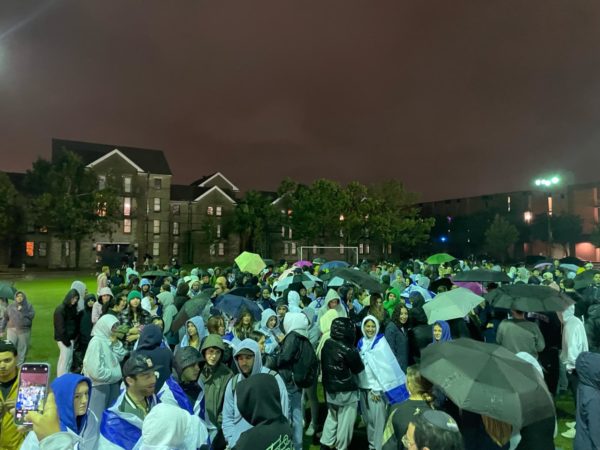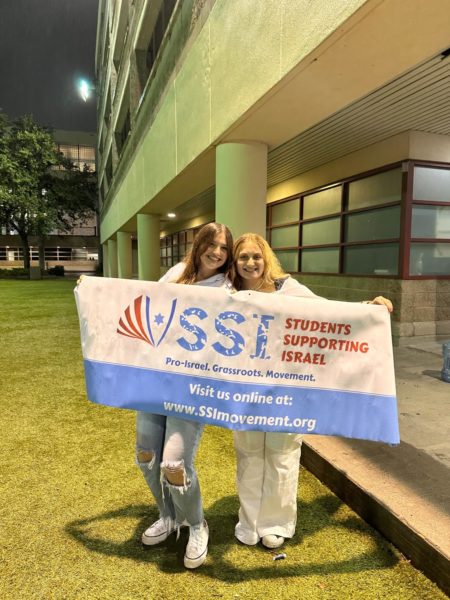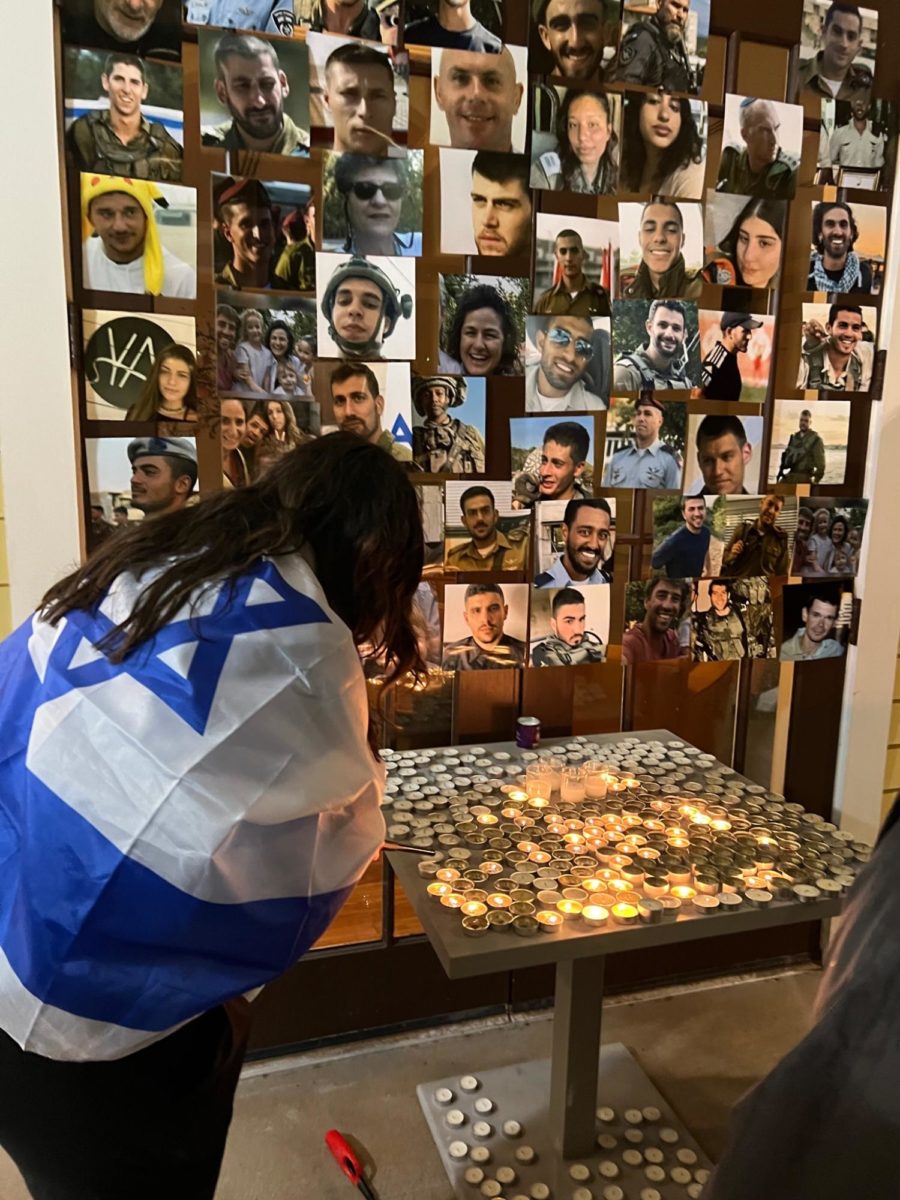In the wake of Hamas’ attacks in Israel last week, Jewish Tulane University students organized a march through campus. They sang outside Hillel. They mourned.
The attacks, Students Supporting Israel President Julie Klingenstein said, were “worse than your worst nightmare.”
But she was also defiant.
“We’re not scared,” she said. “We’re not scared to be out there condemning Hamas. We’re not scared to be out there supporting Israel.”
“Once we allow these people to make us scared,” she said, “then they’ve won.”
Tulane has a Jewish population of more than 40%, and many students have family and friends directly affected by the violence that has ensued.
An airstrike hit a Gazan hospital Tuesday, killing an estimated 500 Gazans. Israel and Palestine blamed each other, and the U.S. said Wednesday that early military intelligence points towards either Hamas or another group, Palestinian Islamic Jihad.
Meanwhile, Israel continues its blockade on the Gaza Strip but said it will not prevent aid from entering from Egypt. Many are calling the siege a humanitarian crisis.
Between helping organize the march and stress from the news, Klingenstein was riding on four extensions for schoolwork. “I just couldn’t focus at all,” she said, “because the Jewish community is so tight, that we actively feel the pain of the Jewish people in Israel, we’re in pain.”
“It’s very scary,” senior Yasmeen Ohebsion said. “It’s been hour to hour and day to day. I have a ton of family in Israel, cousins who are fighting on the front lines, older cousins, who have been called as reserve soldiers.”
The collective pain felt in such a tight-knit community has sparked a massive support network.
Ohebsion, a member of Rohr Chabad Jewish Student Center’s student board and Jewish on Campus student union, said she’s been talking to family constantly, while also organizing events with Chabad and Tulane Hillel. Last week, she assembled a letter-writing campaign for soldiers in Israel. Students wrote over 200 letters to send to Ohebsion’s cousin, who will distribute them to soldiers at his base.
“It’s beautiful to see so many Jewish people coming together, supporting one another,” Ohebsion said.
Even weekly routines have taken on a new dimension. Every Friday, Chabad hosts Shabbat, where Jewish students turn their phones off and spend time together playing games, singing songs and eating dinner. For Klingenstein, though spirits were not high, the energy last Friday was something she had never experienced. “Each Israel group president got up there and said a little speech about what they’re doing on campus. And people were whooping and cheering,” she said. “I’ve never seen that before.”
Administration responds

Like many schools around the country, Tulane condemned Hamas’ terrorist attacks on Thursday. The school first issued a statement Tuesday that called the attacks “horrific,” then faced pushback from some students, who said they wished the statement would have come faster and more strongly against Hamas.
“It’s not like they didn’t have enough time,” Chabad co-President Max Bernstein said. “Especially with the huge Jewish population they have here, I think they could have shown a lot more support.”
Two days later, after a letter signed by 1,500 students, along with pressure from parents, donors and board of trustee members urging Tulane to condemn Hamas, President Mike Fitts released a second statement conveying unequivocal condemnation of Hamas.
“It was definitely what we were looking for originally,” Klingenstein said. “But it’s also kind of hard to know exactly where the administration stands if you’re coming out with a neutral statement, and then just trying to conform to your student body.”
“Not recognizing Hamas as a terrorist organization is a huge fault,” Ohebsion said. “We feel fearful, unsupported, alone, ignored and at risk.”
Social media’s role
As the fog of war in the Gaza Strip thickens, violence and information overload on social media continues to fuel chaos online. Nuanced perspectives, on either side, have become indistinguishable from a flood of misinformation. Instagram stories full of support for civilians are juxtaposed with rants on X, formerly known as Twitter, calling for the annihilation of either nation.
Director of Hillel, Ron Gubitz, urged students to be careful with social media.
“I find so much of it painful. You can get lost in the Twitter replies that are filled with antisemitism. You get retraumatized reading about the hostages or the impact this is having on innocent Gazans and Israelis,” he said. “My strategy has been to set a timer and when the alarm goes off, then I log off.”
“When you initially see it, you think everyone needs to see this, to really understand what’s going on,” Ohebsion said of the violence on social media. “I think a better way to spread awareness is to spread information, is to spread positive messages, encouraging people to donate to legitimate organizations that will really help.”
Fears of antisemitism rose as Israel and its defense force, the Israel Defense Forces, began a likely drawn-out and brutal fight against Hamas.
“There’s going to be a mass casualty on both sides,” Bernstein said, adding that he fears this may induce previously dormant antisemitism. Though he could accept that some may hate Israel’s past policies and upcoming methods of retaliation, “I don’t think you can hate Jews,” he said.
“As overwhelming as the support has been on social media, the antisemitism has also been very overwhelming,” Ohebsion said. “I am scared. And I think that Jewish people all over the country are scared.”
Ohebsion and Zoë Silverberg, co-presidents of The Movement to Address Anti Semitism at Tulane, have been working with Tulane to implement mandatory antisemitism training into the curriculum. Ohebsion said the group has made some progress but has not heard of any firm commitment by the university despite multiple meetings with the school, repeated pleas and a petition with over 1,500 signatures.
Tulane has long condemned antisemitism and discrimination, and last spring, said it was redesigning the freshman orientation program to include “programming that addresses all forms of bias and hate including antisemitism.”
“None of us want to see this kind of terror”

Since becoming the first southern university to accept Jews, Tulane has enjoyed a thriving Jewish culture, and students said the response to Oct. 7 is evidence of the value that culture brings. In the coming weeks, months and perhaps years, the leadership and cooperation of Jewish students among each other, the administration and with supporters of Palestine will likely have a direct effect on the health and well-being of the university, students said.
Ohebsion, Klingenstien and Bernstein all said it is important to distinguish Hamas from Gazans.
“You can support Palestine, but at least show that you’re against Hamas and you’re against terrorism,” Bernstein said.
As uncertainty persists over how Israeli intelligence failed to stop Hamas, the impending damage from counterattacks, or whether a two-state solution will ever be possible, students said one thing is certain: the vast majority of people do not want this war to happen.
Jewish people, Ohebsion said, “have so much sympathy for Palestinians, most of which are innocent, and are really, really suffering right now … None of us want to see this kind of terror happening in Israel or Palestine.”



